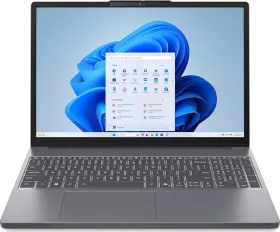Solar energy is becoming a big deal in India thanks to its potential for clean, renewable power. It is both good for you (saves you on bills) and the environment. But if you are new to solar panels or solar systems, doubts might arise as to what the pros and cons of solar panels could be. In this article, we will break down the pros and cons of solar panels so that you can make an informed decision.
The Pros
First, let’s talk about the pros of solar panels. Solar panels are good both for your wallet and the environment. Here’s why:
1. Abundant Sunlight
India receives an average of 4-7 kWh per square meter of solar radiation daily, which translates to about 300 sunny days a year. Thus, India is very suitable for generating solar power.
For example, Rajasthan’s Thar Desert receives around 5.5 to 6.5 kWh/square meter per day, making it a prime spot for solar energy. Your location may not receive the same amount of solar energy, but you can surely receive at least half or more than half of it.
2. Reduction in Electricity Bills
Switching to solar can save a lot on electricity bills. A typical Indian household using around 250 units a month can save INR 1,500 to INR 2,000 per month with solar, which adds up to INR 18,000 to INR 24,000 a year, considering an average electricity rate of INR 6-8 per unit.
Solar panels can significantly reduce your electricity bills if you’re a heavy user who has all the home appliances one can think of. Especially with AC, you’ll be able to use it without having to worry about the heavy bills.
ALSO SEE: Automatic Cars Under ₹15 Lakh
3. Government Subsidies
The Indian government is all in on solar energy. Programs like the Jawaharlal Nehru National Solar Mission offer a capital subsidy of up to 30% for residential installations. One can also opt for a soft loan at a rate of 5% interest.
Plus, there are tax benefits like accelerated depreciation for businesses. You can avail both central and state government subsidies upon installing a solar plant on your roof.
4. Less Reliance on the Grid
Solar panels can reduce reliance on grid electricity, which is a big deal in areas with frequent power cuts. In states like UP and Bihar, where power outages can last up to 8-10 hours a day, solar power can be a game-changer. Even in urban areas, where power cuts are not very common, it’s good to have solar power just in case there is a power cut.
5. Good for the Environment
Most of the grid’s power comes from hydropower or fossil fuels. Solar power is clean and reduces carbon emissions. Estimates say that a 1 kW solar system can cut about 1.5 tons of CO2 annually. Thus, by reducing the grid’s power usage, you can reduce carbon emissions and help protect the environment.
ALSO SEE: 6.6 inch Mobile Phones Price List in India 2024
The Cons
Nothing is complete without its cons. Yes, solar panels have some cons, too. However, these cons can be easily tackled or handled given the pros of solar panels.
1. High Initial Costs
Getting started with solar isn’t cheap. In India, a 1 kW rooftop solar system can cost between INR 60,000 and INR 1,00,000 (after subsidy), depending on the quality and brand of the panels and inverters. Unfortunately, this initial investment is still a barrier for many Indian households and small businesses.
2. Space Requirements

Solar panels need a lot of space, either on the roof or on the open ground. A 1 kW system typically requires around 100 square feet of shadow-free area. Finding that space can be tough in crowded cities like Mumbai and Delhi, especially for apartment buildings. And yeah, getting permission from the building/apartment owner is also a hurdle.
3. Weather Dependent
Solar power generation drops on cloudy days and during the monsoon season. In the monsoons, production can fall by up to 50%, making the supply less consistent.
4. Maintenance

Solar panels need regular cleaning and maintenance to work optimally. Dust, pollution, and bird droppings can reduce efficiency by up to 20%. This is especially relevant in India’s dusty and polluted cities, like Delhi, Kolkata, and Mumbai.
5. Storage Costs
You also need to spend a lot of money on storing the electricity you generate. Battery storage is a must to ensure power at night or on cloudy days unless you want to rely on the grid (during these times).
Lithium-ion batteries will cost you about INR 10,000 to INR 15,000 per kWh in India. Suppose you need 5 kWH of storage—this will cost you an extra INR 50,000 to INR 75,000 over and above the solar panels.
ALSO SEE: Intel Core i7 Laptops Under 50000
Conclusion
In my opinion, most of the cons can easily be outweighed by the pros. The initial cost can easily be recovered in a few years of electricity savings, weather dependency can be reduced by using inverters, maintenance costs can be reduced if you can clean the solar panels by yourself, and the storage costs will also be recovered in a few years of usage.
Not to mention, government subsidies can take 30% off the initial cost, so that’s a significant relief. If you are determined to install a solar system in your house, you should go for it. It is the way to a sustainable future, both for your finances and the environment.
You can follow Smartprix on Twitter, Facebook, Instagram, and Google News. Visit smartprix.com for the latest tech and auto news, reviews, and guides.



































